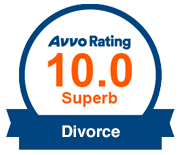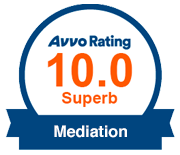Columbia Mediation Lawyer
Finding Creative Solutions Through Mediation
Mediation is a process in which a trained neutral person, a “mediator,” helps people in a dispute to communicate with one another, to understand each other, and if possible, to reach agreements that satisfy everyone’s needs.
- A mediator can help you to reach agreements, build relationships and find solutions that work.
- In mediation, you speak for yourself and make your own decisions.
- Mediators will not make decisions for you, provide any legal advice, or recommend the terms of an agreement.
- Mediation can help protect your privacy since, unlike courtroom proceedings which are open to the public, mediation is a confidential process.
Mediation Explained
When our attorneys explain mediation as a choice for moving forward in domestic cases, they often observe a client’s sigh of relief and overall happiness of another option besides court.
Often clients enter our office like they are entering a battle zone—full of fear and anxiety. They have the belief that if they are going to get divorced, it will be a process that involves court and nothing short of warfare like they see on TV and in the movies (think “War of the Roses”). As mediators, litigators, and collaborative attorneys practicing for many years, we have seen a lot and can pull from our experience in helping clients navigate the family law road. Even so, we often tell our clients, “If you can mediate, do it.”
The test for mediation is that the parties have a genuine sense of honesty, the ability to compromise and have some empathy towards their spouse. Also, the parties are not fearful, intimidated or manipulated by the other party. Even if there does exist some concerns, then mediation can still be a viable option if the parties bring attorneys to the mediation to help the client stay focused and act as a sounding board for their client’s legal rights.
As mediators, we find it helpful that the clients come prepared to the mediation with a sense of their goals and objectives. We then create an agenda or roadmap for moving forward productively by using the goals to map out our “to do” list. It is also good for everyone to have a sense of why they are at mediation. Often people will ask how long the mediation process will take to complete. The best answer is that it depends. Not to be difficult, but it does depend on how well the parties communicate, how dedicated they are at getting their homework completed, and whether the parties are reasonable and able to compromise.
What is homework? It is the laundry list of items needed to get issues resolved. It often consists of items like: interviewing daycare providers, home appraisals, pulling 3 years of tax returns, talking to accountants, going to the local college to learn about degrees and job opportunities, etc. It is best to decide what needs to be done and how to do it in the mediation so that one person doesn’t feel like the other person is taking charge, making unilateral decisions or in short, not working with the other party.
We often schedule several mediation dates at the first mediation so that we have deadlines of when the homework will be completed and to keep the process moving. So, in answer of “how long to finish?”– You can finish a mediation case in one 2 hour session and multiple sessions over the course of an entire year! The timeline truly depends on the issues and the parties—so it depends is not an uncommon answer.
Once the parties resolve the issues through mediation, the next step is to have an Agreement drafted that memorializes the settlement. This can be completed by the mediator or by one or both of the parties’ attorneys. This agreement is a binding contract that the parties will enter into and will be the finished product of their labors in mediation. The agreement can be called many different things depending on the issues that were resolved. The most important part of the Agreement is that the issues are resolved and the parties might never even need to enter the Courthouse! Not bad for making the choice to mediate and avoid the court process. The process of mediation allows the parties to work together, make choices in the best interest of their family, and avoid protracted and costly litigation.
Court Ordered Mediation
- Mediation may save you time and money.
- Mediation provides an opportunity for you to say what’s important to you and hear the other person’s perspectives.
- Mediation may help you figure out how to get your needs and the other person’s needs met by reaching creative, customized solutions that work for everyone.
- You have decision-making power in mediation, and you know what your needs are better than any judge or jury.
- Many business disputes, family conflicts, neighborhood disputes, and one-on-one issues can be effectively resolved in mediation.
- Even some criminal and juvenile justice cases are better handled in mediation than in court, especially if the people involved have an ongoing relationship.
- Mediation may help preserve or improve troubled family relationships.
Benefits of Mediation
Mediation is not about winning or losing, but rather, about having an opportunity to identify solutions that work for everyone:
- Agreements made in mediation come from participants, not the mediator.
- Participants in mediation may choose to sign a written agreement which is enforceable as a contract.
- If you do not reach an agreement or develop a solution that works for everyone, you can still have your case handled by the court or resolved in some other way.
- If you do not sign a written agreement in mediation, and you decide to take your dispute to court, neither the mediator nor the participants can testify in court about what happened during the mediation.
- You can’t “lose” in mediation.
Statistics clearly show that over 90% of divorces are settled with reasonable fairness and outcomes for both spouses according to the laws of our state. The reality of our legal system is that it costs a lot of money and takes a lot of time. In mediation, you can possibly achieve the same results for less cost, time and aggravation.
Help With Columbia Family Mediation in Howard County and Beyond
For help with family law mediation in Maryland, call Weinberg & Schwartz, L.L.C. at 410-997-0203. We represent clients throughout Maryland, but especially Howard County communities such as Columbia, Ellicott City, Fulton, Maple Lawn and Clarksville.









